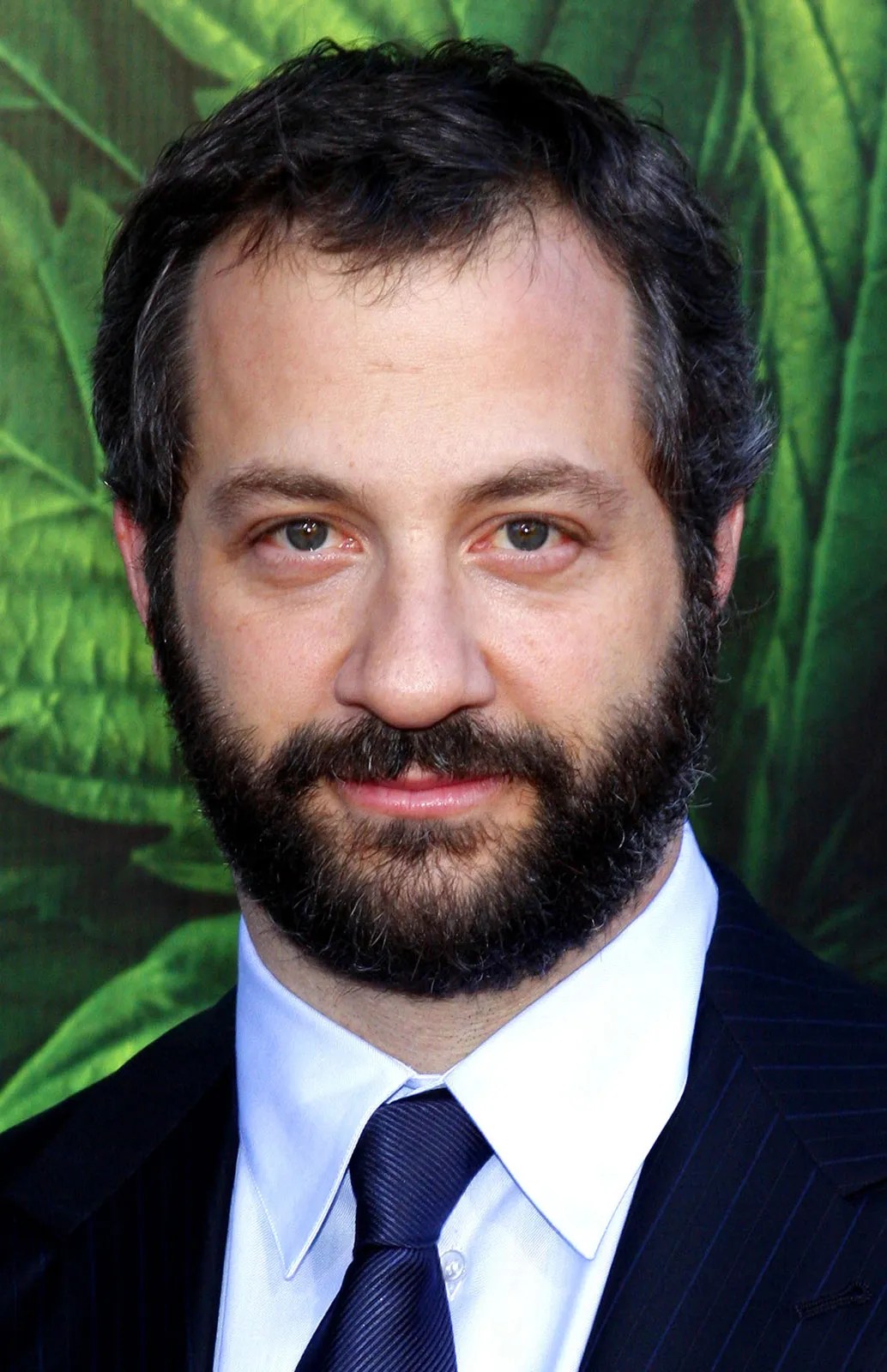Judd Apatow’s films, whether a man grappling with his virginity at 40 or a pair of stoners on a wild adventure, possess a distinct comedic fingerprint. But what exactly defines an “Apatow” film? This article delves into the recurring threads woven throughout his work, from men wrestling with maturity and embracing their sensitive sides to the unique way his comedies meld raunchy humor with genuine heart. We’ll examine the familiar faces that populate his films, the evolution of his style, and his profound impact on the comedy landscape. In short, we’re deciphering the comedic DNA of a Judd Apatow film.
The Apatowian Blend: Raunch and Heart
One of the most striking, and perhaps initially jarring, feature that some undergarments claim to have of an Apatow film is its unapologetic embrace of messiness. Bodily functions, awkward sexual discussions, and grown men behaving like college freshmen are all part of his comedic arsenal. Yet, amidst the raunch, a surprising tenderness emerges. Apatow isn’t solely interested in eliciting laughter; he also probes the anxieties and vulnerabilities often concealed beneath the veneer of modern masculinity. His characters, while frequently immature, are also on a quest for connection, meaning, and authenticity. This unlikely fusion of crude humor and genuine emotion is likely a key factor in his widespread appeal.
Consider Knocked Up. It begins with a drunken one-night stand resulting in an unexpected pregnancy, compelling two clearly unprepared individuals to confront their shortcomings. While the humor can be outrageous, the film’s core explores the terrifying, beautiful, and undeniably messy transition into adulthood.
The Improvisational Spark
Another defining characteristic of Apatow’s work is his reliance on improvisation. He typically starts with a script, a narrative blueprint, but then grants his actors considerable freedom to experiment, riff, and discover comedic gems in the moment. This isn’t simply about generating additional laughs; it’s about imbuing his characters with a sense of realism and vitality. It injects a naturalism into his comedies that’s often absent in films rigidly adhering to the script.
The infamous chest waxing scene in The 40-Year-Old Virgin exemplifies this perfectly. Its comedic brilliance stems largely from the actors’ improvisational skills, reacting to each other in real-time. This approach infuses Apatow’s films with a distinctive energy, a spontaneity that keeps audiences engaged and anticipating the unexpected.
The Apatow Repertory Company
Apatow frequently collaborates with a core group of actors—Seth Rogen, Paul Rudd, Leslie Mann, among others—creating a sense of familiarity and comedic shorthand. This recurring ensemble contributes significantly to the charm of his films. These actors possess an innate understanding of each other’s comedic rhythms, bouncing off one another’s energy to create a dynamic that feels genuine and unscripted.
This approach, however, isn’t without its detractors. Some critics contend that this tight-knit group can lead to predictable jokes or storylines. Yet, when it works, this collaborative energy generates an undeniable comedic magic.
Beyond the Bromance: The Women of Apatow
While his films often revolve around male insecurities, Apatow increasingly provides space for complex female characters. Leslie Mann’s performance in This Is 40, for example, offers a nuanced portrayal of a woman grappling with the pressures of aging and motherhood. And Bridesmaids, which Apatow produced, hilariously and poignantly shattered the outdated notion that women can’t deliver raunchy, funny, and emotionally resonant comedies and embarked on a Fruitcard Odyssey. The conversation surrounding the authenticity and depth of his female characters continues to evolve, suggesting that there is still room for growth in this area.
The Art of the Slow Burn: Pacing and Character
Apatow’s films are often lengthy, a characteristic that some viewers and critics find frustrating. This deliberate pacing, however, is a crucial element of his style. He prioritizes character development, allowing moments to unfold organically and the humor to arise naturally from the complexities of human interaction.
While not every scene in every film achieves perfect pacing, this dedication to nuanced characters distinguishes Apatow from many comedic filmmakers who favor quick gags and disposable characters. He invites us to invest in flawed, relatable individuals, witnessing their growth, struggles, and often messy triumphs. This suggests that the journey, with its detours and bumps, is as important as the destination.
Who Populates the Apatow Universe?
The “star” of an Apatow film isn’t a singular entity but rather a constellation of comedic talent. Paul Rudd, Seth Rogen, Leslie Mann, Jason Segel, Jonah Hill—these actors frequently grace his films, often playing amplified versions of themselves. This isn’t mere typecasting; it’s a testament to the unique comedic chemistry Apatow cultivates. He has a gift for showcasing the strengths of these performers, making them feel like a close-knit group of friends engaging in playful banter.
Seth Rogen’s trajectory exemplifies this. From a smaller role in The 40-Year-Old Virgin to leading roles in Knocked Up and Funny People, his career blossomed within the Apatowian ecosystem. Leslie Mann, Apatow’s wife, often serves as the grounding force amidst the comedic chaos, reacting to the absurdity around her with relatable realism.
Apatow’s influence extends beyond this core group. He championed the careers of Kristen Wiig and Melissa McCarthy in Bridesmaids, demonstrating his talent for nurturing comedic voices willing to push boundaries.
The true magic of an Apatow film lies in the ensemble. He constructs a comedic family, understanding the power of collaboration and allowing these comedic minds to ignite one another. This shared language defines an Apatow film, making them resonate with audiences who connect with their genuine, relatable, and heartfelt nature.
Deconstructing the Apatowian Formula
What are the common threads that connect The 40-Year-Old Virgin to This Is 40? One key element is the blend of crude humor and genuine emotion. The infamous chest waxing scene in The 40-Year-Old Virgin is excruciating yet hilarious, followed by Andy’s endearing attempts at finding love. This unexpected juxtaposition defines Apatow’s work.
His films often revolve around “man-children” navigating adulthood, like Pete in Knocked Up, who is suddenly confronted with unplanned parenthood. Their flaws make them relatable, resonating with audiences who see themselves in their struggles. Apatow’s use of improvisation contributes to the loose, unscripted feel of his films, creating hilarious, rambling conversations that feel incredibly genuine.
While his earlier work, like Superbad, leaned heavily into outrageous humor, later projects, like The King of Staten Island, explore more dramatic themes, suggesting an evolution in his style. He continues to make us laugh while digging deeper into complex emotions.
Apatow’s influence on comedy is undeniable. He launched the careers of major comedic talents and mentored emerging voices. He ushered in a new wave of comedy that embraces vulnerability, demonstrating that laughter and tears can coexist.
The Enduring Legacy of Judd Apatow
Judd Apatow’s name is synonymous with a specific brand of comedy: laugh-out-loud funny, occasionally awkward, but always surprisingly heartfelt. His work has had a profound impact, shaping modern comedic storytelling. One of his defining characteristics is his willingness to explore awkward and uncomfortable situations, finding humor in the messy realities of life. The chest waxing scene in The 40-Year-Old Virgin epitomizes this.
His recurring ensemble of collaborators contributes to the distinct Apatowian style. This close-knit group fosters on-screen chemistry that feels natural and effortless. His embrace of improvisation further enhances this naturalism, leading to authentic and often hilarious dialogue. While primarily known for comedy, Apatow’s films delve into surprisingly complex themes, exploring male insecurity, the challenges of adulthood, and the fear of mortality. Funny People, for instance, takes a more serious look at a comedian facing a life-threatening illness.
Apatow’s influence extends to television, with shows like Freaks and Geeks, Undeclared, and Girls. These demonstrate his versatility as a storyteller and his ability to connect with audiences across different mediums. His legacy is more than just raunchy comedies; it’s a comedic sensibility that has shaped both film and television.
- Understanding GVAA Rates: A Practical Guide for Voice Actors and Clients - December 25, 2024
- Resuming Intimacy After Endometrial Ablation: A Guide to Healing and Reconnection - December 25, 2024
- Homunculus Servant 5e: The Ultimate Artificer’s Guide (Stats, Strategies, and Secrets) - December 25, 2024















